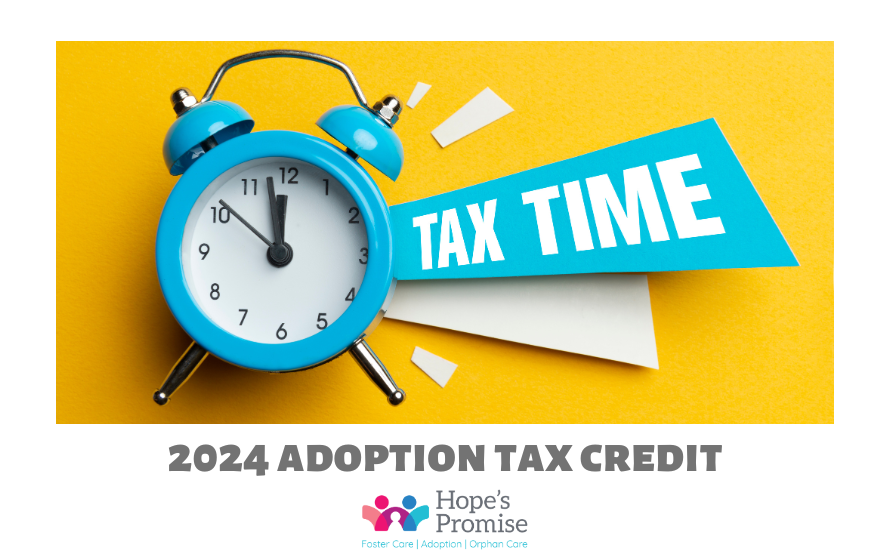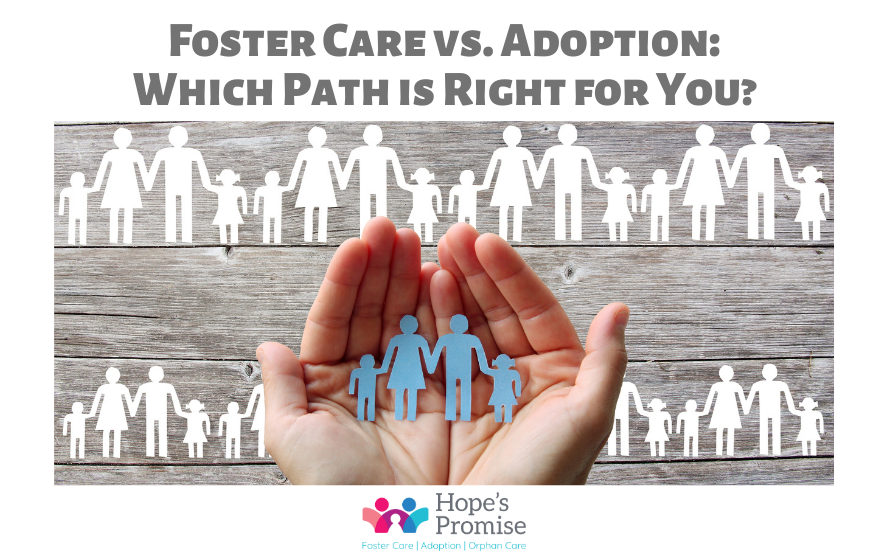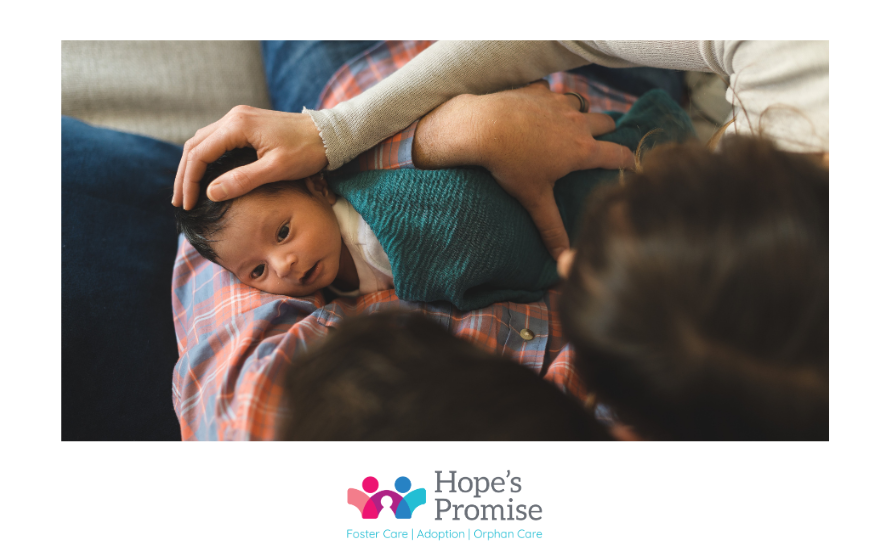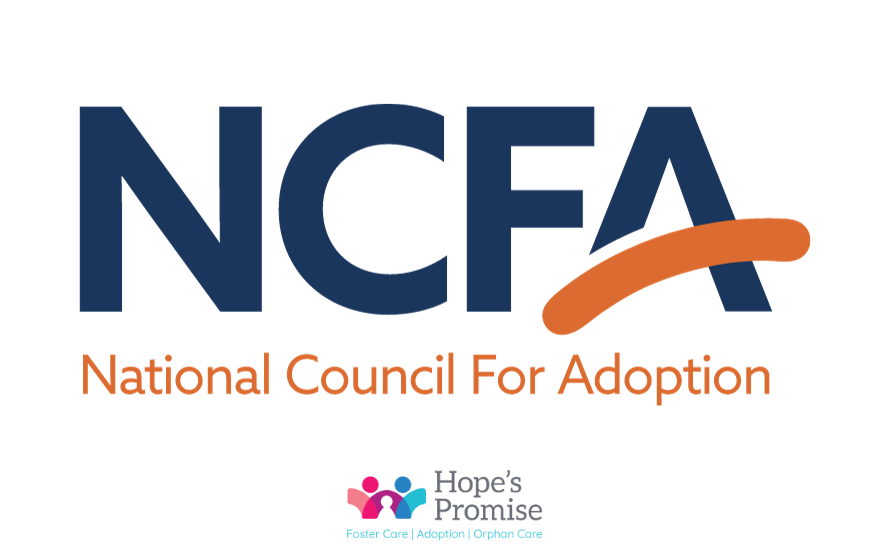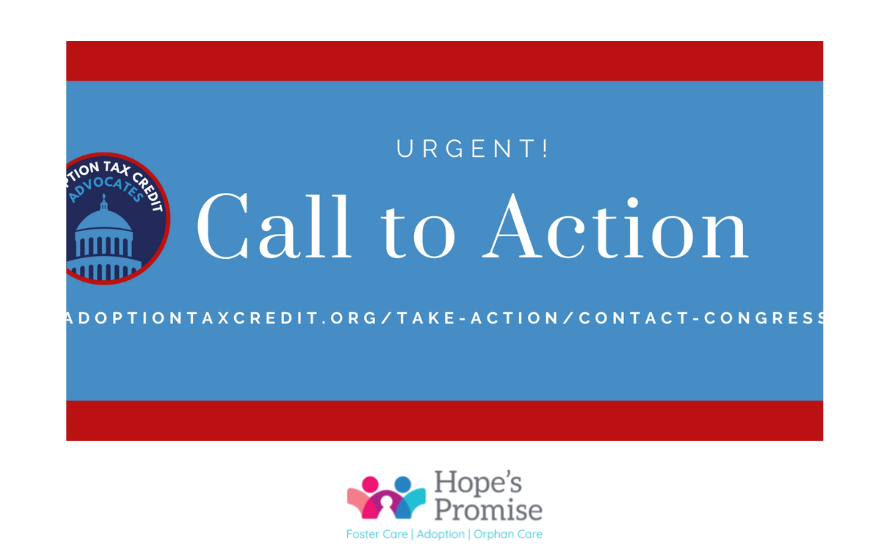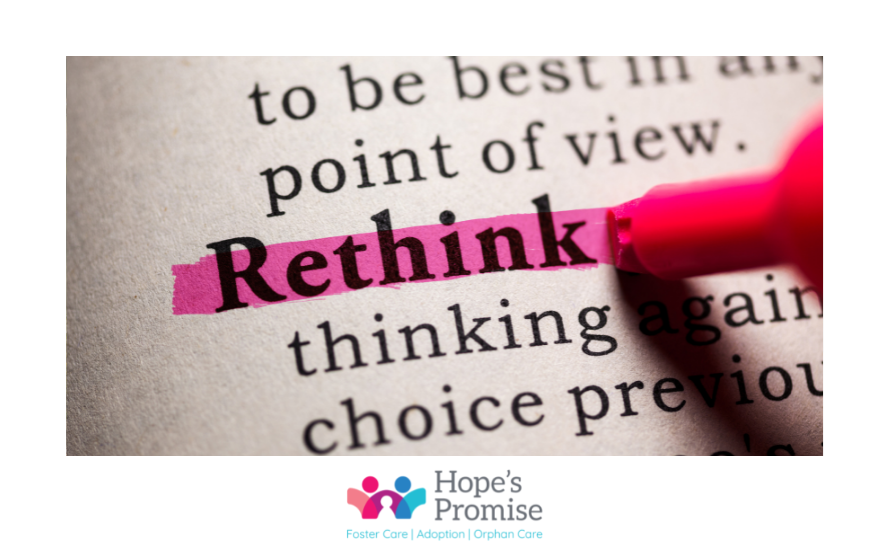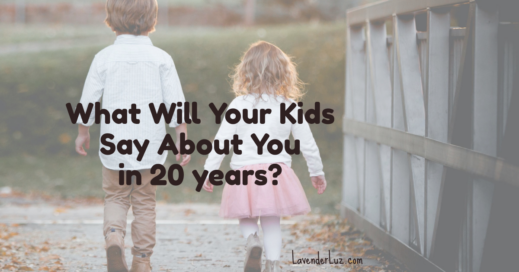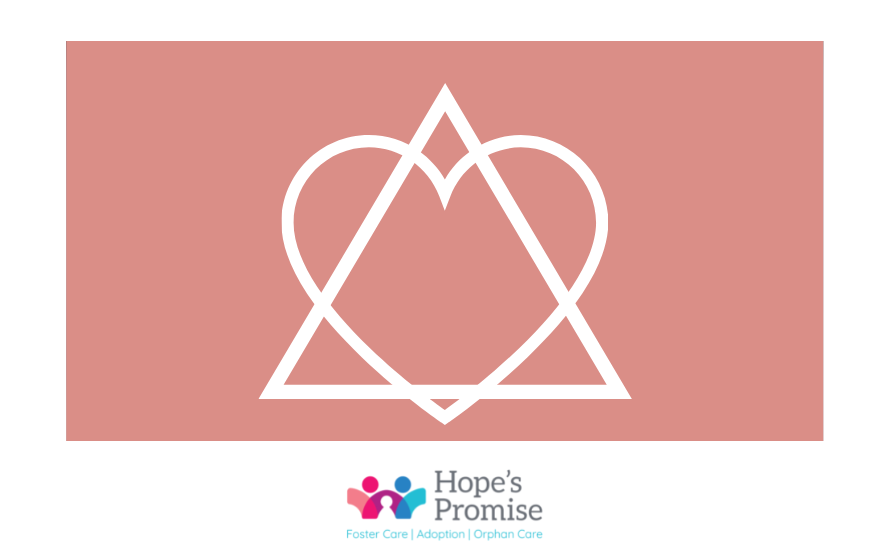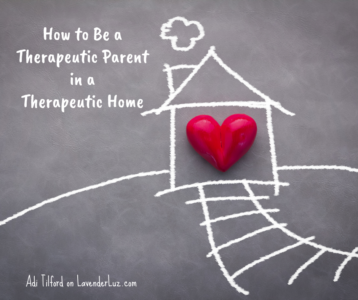2025
2024 Adoption Tax Credit
It’s hard to believe that it is already tax season, but here we are! Hope’s Promise is dedicated to sharing great resources on all things foster care, adoption, and orphan care. So, when we came across this blog from the National Council for Adoption, we knew we had to share it with our adoptive families.
Doing your taxes can be tricky, but if you think you might be eligible for the adoption tax credit, this guide is a great resource.
Enjoy!
2024
Foster Care vs Adoption: Which Path is Right for You?
Foster Care vs. Adoption: Which Path is Right for You?
The journey to becoming a parent or supporting children in need can take many forms, and two of the most common paths are foster care and adoption. Each option has its unique rewards and challenges. Choosing the right one depends on your goals, resources, and family circumstances. Let’s explore the differences to help you make an informed decision.
Understanding Foster Care
What Is Foster Care?
Foster care is a temporary arrangement where children who cannot live with their biological families are placed with trained caregivers, also known as foster families. It focuses on providing a safe and stable environment while biological parents work toward family reunification or a permanent solution.
Who Can Become a Foster Parent?
Foster parenting is open to people from diverse backgrounds. Common requirements include being over 21, passing background checks, and completing training. Emotional resilience and trauma-informed care, which Hope’s Promise provides, is key. Find detailed guidelines on the Child Welfare Information Gateway.
The Foster Care Process
The process includes an information meeting, application, training, home assessments, and child placements. Durations vary based on the child’s needs and family circumstances. You can learn more the process here.
Understanding Adoption
What Is Adoption?
Adoption is a legal process creating a lifelong parent-child relationship. Unlike foster care, adoption is permanent and transfers all parental rights to adoptive parents.
Types of Adoption
- Domestic Adoption: Within the same country.
- International Adoption: Involves adopting a child from another country.
- Adoption Through Foster Care: A cost-effective way to adopt.
The Adoption Process
The adoption process includes an information meeting, application, home studys, training, and legal finalization. Timelines vary based on adoption type and jurisdiction.
Key Differences Between Foster Care and Adoption
Legal and Financial Considerations
Foster care is state-supported, often including stipends for care, whereas adoption typically involves legal costs, especially for private or international adoptions.
Time Commitment and Permanency
Foster care is temporary, aiming for family reunification, while adoption is lifelong. Both options provide the opportunity to positively impact a child’s life.
Emotional Aspects
Foster parents face challenges such as reunifications, while adoptive parents work on bonding and the child’s adjustment and providing them with emotional resources.
Conclusion
Both foster care and adoption provide life-changing ways to alter the trajectory of a child’s life by providing a stable and loving family. Whether you choose the temporary yet impactful route of foster care or the permanent path of adoption, thorough research and support can guide your decision.
Looking for more stories, updates, and resources about adoption, foster care, and orphan care? Visit our main blog page at Hope’s Promise Blog to discover more resources and join us in writing stories of hope together.
2023
National Adoption Month
Creating Awareness and a Reason to Celebrate.
According to Adoption and Beyond, in 1984 President Reagan proclaimed the first National Adoption Week, but as states and cities began to celebrate and recognize the adoption, a week just wasn’t enough, which led to President Clinton establishing November as National Adoption Month.
National Adoption Month is an opportunity to raise awareness about adoption. Below is a list of ideas compiled from various sources on how we can not only raise awareness but also celebrate National Adoption Month.
- Share Your Story- If adoption has had an impact on your life in any way or you are a part of the adoption triad, sharing your story is vital and gives voice to the beautiful complexity of adoption.
- Read an Adoption Book- some of the Hope’s Promise staff favorites are:
- Adoption is Both – Elena Hall
- The Open Hearted Way to Open Adoption – Lori Holden
- The Connected Child and The Connected Parent – Dr. Karyn Purvis
- Raise Awareness on How to Adopt- If you know anyone interested in adoption, you can send them to the Hope’s Promise website to learn more.
- Support Foster Families- Some adoption stories begin with Foster Care. You can reach out to a foster family you know and provide a meal for them or offer your babysitting services.
- Hold a Drive- hold a gift card drive during the holiday season to give to Hope’s Promise Foster Families or donate new or slightly used items to the Foster Care Lending Closet at Hope’s Promise.
- Donate to an Adoption Charity: You can make a donation to Hope’s Promise to support our adoption program. At Hope’s Promise we do more than just provide adoption services to hopeful adoptive parents. We support birth parents through counseling services and provide monthly birth mom support groups as well as annual events to promote community. We also provide education and resources for adoptive parents. You can make a year-end gift to support Hope’s Promise by visiting HERE.
- Attend an Event: Every year Hope’s Promise holds exciting events to support its three life-changing programs: foster care, adoption, and orphan care. Learn more about our events HERE.
- Have a Get-together with Other Adoptive Parents: If you are an adoptive parent, one of the best things you can do is to surround yourself with other families that have shared experiences. We should never walk through life, or the experiences in it, alone.
- Share on social media- Sharing your heart for adoption makes a huge difference. If you don’t want to share your own adoptive story, or you don’t have one, follow Hope’s Promise on Facebook and Instagram and share our stories and posts.
- Share your adoption story at your church. Hope’s Promise has countless church partnerships, and they all begin with YOU sharing your heart for adoption and foster care with your pastor.
There are so many ways to celebrate the beauty of adoption. Together we can raise awareness!
2023
It’s time to make the Adoption Tax Credit refundable
We have good news from our friends at the National Council for Adoption! A bipartisan group of Senators and House Representatives have come together to re-introduce the Adoption Tax Credit Refundability Act, which would provide critical financial resources to families who are willing to open their hearts and their homes to a child in need.
This bill would ensure many more families are eligible for the tax credit, including lower-income families; and, allow all families to receive all the credit that they are eligible for, in full, so they have the resources they need to meet their child’s needs, and help their family thrive.
How to support this bill in five minutes or less:
Use our quick and easy advocacy tool to directly contact your members of Congress and ask them to sponsor the bill, and support its inclusion in any year-end tax legislation. We’ve already created the messages for you and the system will automatically match you to your Senators and House Rep.
That’s it, you’re done! Thank you for speaking up on behalf of children and adoptive families. Your voice matters.
2023
What You Should Know About the Adoption Tax Credit
With Tax Day less than a week away (April 18th) it’s important for adoptive parents to know about the Adoption Tax Credit. Our Friends at the National Council For Adoption have the best resources and we want to share them with you!
2022
Adoption Tax Credit
URGENT—TAKE ACTION NOW!
from our friends at the National Council For Adoption
Join us in asking Congress to include the Adoption Tax Refundability Act in Year-End Legislation
It’s quick and easy to send a clear message to your Senators and Representative asking them to do two things:
1. Cosponsor the bill (S.1156/H.R.3031) if they haven’t yet.
2. Convey to their tax committee and caucus leadership the importance of including the bill in their priority list for tax provisions in any year-end legislation considered in December.
Visit adoptiontaxcredit.org/take-action/contact-congress to send a prewritten message to Congress in just a few minutes.
2022
Rethinking “Gotcha Day”
Maya Angelou: “Do the best you can until you know better. Then when you know better, do better”
Many adoptive families choose to celebrate and recognize the day their child’s adoption was finalized or the day they became legally a family. It is an important milestone in the journey for the family and the adoptee. However, at Hope’s Promise, we have been discussing new ways to mark this occasion appropriately, sensitively, and without the much-used old terminology of “Gotcha Day.”
We are always striving toward accurate and neutral adoption language as well as continuing to listen to adoptees’ experiences of adoption. Through listening and learning, we are finding that the term “gotcha” is not accurate or neutral. For the adoptee, the day they joined their new family also is a day that they forever left their birth family’s care and/or homeland. As with many things for adoptees, there is both/and – both joy and grief.
We have come to wonder if “gotcha” seems to either gloss over the loss of birth family or gloat over the joy of the adoptive parents. Some adoptees feel that this language sounds a bit like abduction or not being sensitive to the power structure of adoption. Adoptees have no power over any of the decisions that so dramatically changed their lives. In terms of relinquishment, we choose not to use the terms “give up” or “keep” because it objectifies the adopted person. In the same way, “gotcha” can objectify the adoptee.
Does this mean families cannot celebrate the day they became a family? By no means! But we would suggest using the term Adoption Day or Family Day, which is more accurate and neutral than the language “Gotcha Day.”
Want to learn more? Here are some articles from multiple perspectives we encourage you to read about this issue that helped inform our thoughts:
https://adoption.com/adoption-day-to-celebrate-not-some-flaws-in-gotcha
https://www.huffpost.com/entry/gotcha-day-isnt-a-cause-f_b_6094206
https://web.archive.org/web/20140810150801/http:/www.adoptivefamilies.com/articles.php?aid=1266
Podcast:
2022
Midpoint of the Adoptive Parenting Feedback Loop
You know the saying “hindsight is 20/20”. We’ve all heard it before, but this exercise for adoptive parents, takes the saying to a whole different level. Writer, author, and adoptive parent, Lori Holden, revisits a letter she wrote to her adoptive children answering the following questions:
Imagine your child as an adult describing their open adoption experience. What do you hope they will be able to say about you? How did you view their other parents? In what ways did you support their relationship with them?
Read more to learn how this practice can help all adoptive parents outline what their adoption goal are and then see how well they are aligned in years to come. In writing the letter, parents not only practice seeing through their children’s eyes, but they also clarify what they want of their own parenting in the long run.
Read more here: Cringey! Midpoint of the Adoptive Parenting Feedback Loop
2022
Post Adoption Contact Agreement (PACA): What is it and how will it affect me?
The state of Colorado recently passed a law that there is a legally enforceable PACA. A PACA is a Post Adoption Contact Agreement.
This article, from our friends at American Adoptions, outlines the benefits of a PACA. When you choose adoption, whether as a birth parent or as an adoptive parent, you can choose what kind of post-adoption contact you have with the other members of the adoption triad.
2022
How to be a Therapeutic Parent
As adoptive, foster, or even biological parents, we all tend to wonder how we could be doing better.

